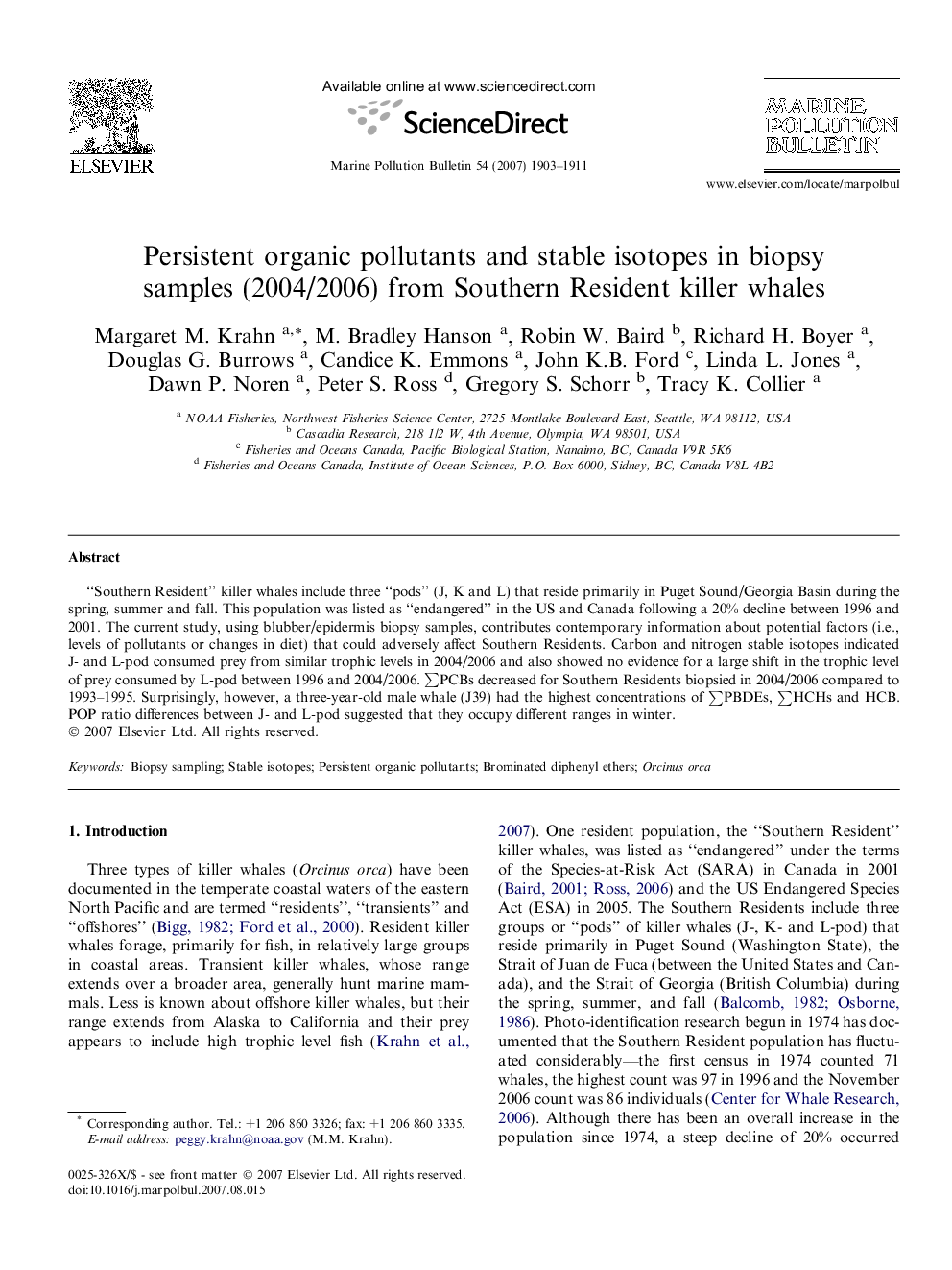| Article ID | Journal | Published Year | Pages | File Type |
|---|---|---|---|---|
| 4477707 | Marine Pollution Bulletin | 2007 | 9 Pages |
“Southern Resident” killer whales include three “pods” (J, K and L) that reside primarily in Puget Sound/Georgia Basin during the spring, summer and fall. This population was listed as “endangered” in the US and Canada following a 20% decline between 1996 and 2001. The current study, using blubber/epidermis biopsy samples, contributes contemporary information about potential factors (i.e., levels of pollutants or changes in diet) that could adversely affect Southern Residents. Carbon and nitrogen stable isotopes indicated J- and L-pod consumed prey from similar trophic levels in 2004/2006 and also showed no evidence for a large shift in the trophic level of prey consumed by L-pod between 1996 and 2004/2006. ∑PCBs decreased for Southern Residents biopsied in 2004/2006 compared to 1993–1995. Surprisingly, however, a three-year-old male whale (J39) had the highest concentrations of ∑PBDEs, ∑HCHs and HCB. POP ratio differences between J- and L-pod suggested that they occupy different ranges in winter.
